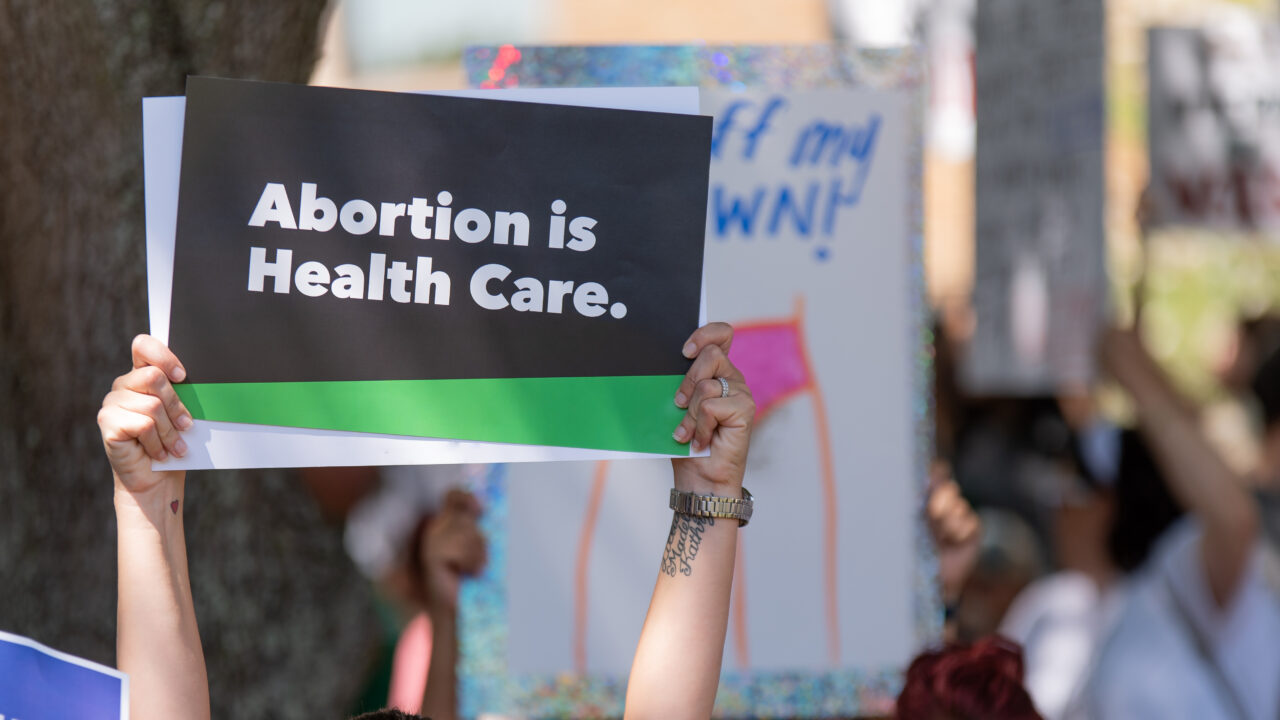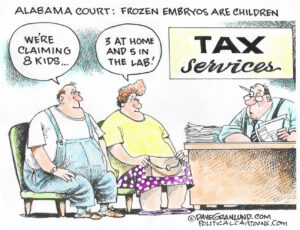Florida Supreme Court Paves the Way for Abortion Ban
Florida will join its neighbors in the South in outlawing abortion for most of pregnancy. Image: Adobe
Image: Adobe
The Florida Supreme Court struck down its state abortion protection — paving the way for a six-week ban passed in 2023 to take effect — but will allow voters to weigh in on whether they can amend the state’s constitution to explicitly enshrine abortion rights.
The court issued two separate rulings Monday: one upholding a 15-week abortion ban passed in 2022, and another approving an abortion rights ballot measure to go before voters this November. The measure — which will need the backing of 60 percent of voters to pass, the highest threshold in the country — would amend Florida’s constitution to explicitly guarantee abortion rights in the state to the point of fetal viability, which is determined by physicians but is usually around 22 to 25 weeks of pregnancy.
But in the interim, Florida will join its neighbors in the South in outlawing abortion for most of pregnancy. That is because in 2023, the state legislature passed a subsequent abortion ban, cutting off access to the procedure after six weeks — but holding that the law would take effect 30 days after the state court issued a ruling upholding 2022’s 15-week law.
Florida will join its neighbors in the South in outlawing abortion for most of pregnancy.
The court’s ruling on the 15-week law hinged on a decision to reconsider how the state Constitution’s privacy protections, which since 1989 have included the right to abortion. Citing the U.S. Supreme Court’s decision in Dobbs v. Jackson Women’s Health Organization, the court’s conservative majority held that logic no longer applied.
The ruling will have major implications. Since June 2022, Florida, home to more than 60 abortion clinics, has seen one of the nation’s largest increases in abortions. In the first year after Roe was overturned, the state recorded 20,460 more clinic-provided abortions than it had seen the year prior, according to data analyzed by the Society of Family Planning. That translates to 1,705 more abortions every month. The spike, researchers believe, can be attributed to people traveling to Florida to receive abortions they can no longer legally access at home.
The Sunshine State is among about a dozen states with ongoing efforts to put reproductive rights on the ballot this fall, following the success of similar measures in Ohio and Michigan. In a presidential election year, Democrats hope the measures will help keep abortion rights top of mind for voters and motivate them to the polls.
Floridians Protecting Freedom, a nonpartisan coalition of reproductive rights groups behind the ballot measure, gathered more than a million signatures to put the abortion measure on the ballot after a months-long petition drive that launched last May. Now, the campaign faces an uphill battle to get the voter support and resources it needs in a state that many Democratic leaders and donors have written off in recent cycles.
Of the states with a path for citizen-led ballot measures, Florida is the only one where the attorney general is required to get an opinion from the state supreme court on whether the language of a proposed measure is concise, clear and addresses a single subject. The court is not supposed to rule on the merits of a measure. On Monday, a measure that would legalize marijuana for recreational and not just medical use also got the go-ahead for the November ballot.
Amendment to Limit Government Interference with AbortionBallot summary, as it would appear before voters: No law shall prohibit, penalize, delay, or restrict abortion before viability or when necessary to protect the patient’s health, as determined by the patient’s healthcare provider. This amendment does not change the Legislature’s constitutional authority to require notification to a parent or guardian before a minor has an abortion.
The office of Florida Attorney General Ashley Moody declined to comment beyond a post on X, formerly known as Twitter, in which Moody praised the court’s decision on the abortion ban but not the ballot measures.
“We have argued from the beginning that these two new constitutional initiatives will mislead voters. We maintain that it will be an uphill battle to educate them. However, we respect the court’s decisions,” she said.
In asking the court to rule on the abortion effort, Moody had argued the word “viability” in the measure’s text was so vague voters would not be able to understand the implications and that it would enable providers to regulate themselves.
During a February hearing on the language in the ballot measure, Chief Justice Carlos G. Muñiz said he didn’t believe the language would be confusing to voters, saying: “The people of Florida aren’t stupid. They can figure this out.” But, Muñiz said that unsettled legal questions about whether the Florida Constitution protects “an unborn child at any stage of pregnancy” meant that voters couldn’t know what the ultimate effect of the constitutional amendment would be if it passed.
His statement raised questions about whether the court would look beyond the constitutional amendment and issue a broader ruling impacting fetal personhood. Ultimately, it decided to leave that question for another day.
The lead attorney for the referendum campaign, Courtney Brewer, argued before the court that the summary is clear, including when it seeks to limit restrictions on abortions before “viability or when necessary to protect the patient’s health.”
Once Florida’s six-week ban takes effect May 1, Virginia — where abortion is legal until 27 weeks of pregnancy — will be the only state in the South to allow abortion past the first trimester.
“There is no question that voters understand what viability means in the abortion context. This is a term and its meaning that have become a part of the cultural fabric of our nation,” she told the court.
Once Florida’s six-week ban takes effect May 1, Virginia — where abortion is legal until 27 weeks of pregnancy — will be the only state in the South to allow abortion past the first trimester. The state is home to nine abortion clinics. Beyond Virginia, the closest options for care are Washington, D.C., and Illinois.
A six-week cutoff will make it far more difficult — and in many cases, impossible — for people to travel to Florida for care. Because a menstrual cycle lasts about 28 days, people often do not find out they are pregnant until they are, at the earliest, four weeks along. The six-week limit would leave them with only two weeks to secure time off from work, child care if necessary, and money to pay for out-of-state travel and for an abortion itself. The state also requires people seeking the procedure make two in-person visits to a clinic 24 hours apart, requiring additional time and money.
The new law nominally allows abortion up to 15 weeks for those who became pregnant as a result of rape or incest. But applying that exception requires people have a copy of a police report, restraining order, or other medical or court record showing their pregnancy was in fact because of rape or incest. The vast majority of sexual assaults go unreported.
“This puts more pressure on patients that are underinsured, patients that are uninsured. It’s going to be very detrimental. it’s a very big deal for the women of Florida, a six-week ban,” Dr. Cecilia Grande, an OB-GYN in south Miami, said on a call for abortion rights groups on Monday in response to the ruling.
Florida is among three Southern states to pass and implement strict new abortion bans last year. In May 2023, North Carolina lawmakers overrode the Democratic governor’s veto to pass a 12-week cutoff. That ban took effect in July and also requires that people make two in-person visits to a clinic, separated by 72 hours — a stipulation that clinicians in the state worried would make travel prohibitively expensive. The month after that law took effect, abortions in North Carolina dropped by 30 percent, according to the Guttmacher Institute. South Carolina also passed a six-week law in May, and that August, the state’s Supreme Court allowed that law to take effect as well, despite overturning a nearly identical law the previous January.
Your support matters…Independent journalism is under threat and overshadowed by heavily funded mainstream media.
You can help level the playing field. Become a member.
Your tax-deductible contribution keeps us digging beneath the headlines to give you thought-provoking, investigative reporting and analysis that unearths what's really happening- without compromise.
Give today to support our courageous, independent journalists.






You need to be a supporter to comment.
There are currently no responses to this article.
Be the first to respond.